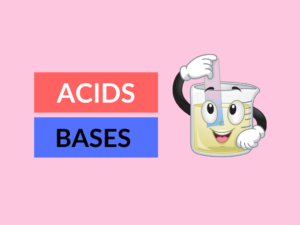Magnesium Citrate vs. Glycinate: Understanding the Differences
As important minerals that contribute to our overall health, magnesium is essential for many bodily functions. It helps to regulate the heart rhythm, supports immune system health, promotes strong bones, and more. Magnesium citrate and glycinate are supplements that are designed to increase magnesium levels in the body. While they serve the same purpose, there are differences between these two supplements that should be highlighted.
What is Magnesium Citrate?
Magnesium citrate is a magnesium supplement that is made by combining magnesium with citric acid. This supplement is one of the most popular forms of magnesium on the market. It has a good absorption rate and is well-tolerated by most people. Magnesium citrate is available in capsules, tablets, and liquids.
Examples of Magnesium Citrate
– Best Naturals Magnesium Citrate
– Solgar Magnesium Citrate
– Nature Made Magnesium Citrate
Uses of Magnesium Citrate
Magnesium citrate is often used to treat or prevent magnesium deficiency. It is also used to relieve constipation, reduce anxiety, and improve sleep quality. Additionally, magnesium citrate is used as a laxative to prepare individuals for colonoscopies and other medical procedures.
What is Glycinate?
Glycinate is a form of magnesium that is chelated, meaning it is bound to an amino acid. In the case of glycinate, magnesium is bound to glycine. This form of magnesium is referred to as “chelated magnesium” and is known for its high absorption rate and bioavailability. Glycinate is available in capsules, tablets, and liquids.
Examples of Glycinate
– Doctor’s Best High Absorption Magnesium Glycinate
– Pure Encapsulations Magnesium Glycinate
– Nested Naturals Magnesium Glycinate
Uses of Glycinate
Glycinate is used for the same purposes as magnesium citrate, including the treatment of magnesium deficiency, constipation relief, anxiety reduction, and sleep improvement. In addition, glycinate is often recommended for individuals with gastrointestinal disorders who struggle with absorption issues.
Differences Table
| Difference Area | Magnesium Citrate | Glycinate |
|---|---|---|
| Bioavailability | Lower absorption rate due to the presence of citric acid | Higher absorption rate due to chelation with glycine |
| Citric Acid | Promotes bowel movements as a side effect | Lacks citric acid, making it less likely to cause bowel movements |
| Taste | May have a tart flavor due to the presence of citric acid | Generally tasteless or mild-tasting |
| Specific Ailments | More effective for constipation and colon health | More effective for reducing anxiety and improving sleep quality |
| Formulation | Available in capsules, tablets, and liquids | Available in capsules, tablets, and liquids |
| Side Effects | May cause diarrhea or upset stomach | Generally well-tolerated with few side effects |
| Ion Charge | Carries a negative charge | Neutral charge |
| Absorption Timing | May be absorbed more quickly | May be absorbed more gradually |
| Metabolism | May be metabolized more slowly | May be metabolized more quickly |
| Recommended Dosage | May require larger doses due to lower absorption | May require smaller doses due to higher bioavailability |
Conclusion
Magnesium citrate and glycinate are both excellent sources of magnesium, but their differences lie in their absorption rates, formulations, and recommended uses. The choice between the two depends on an individual’s specific needs, taste preferences, and potential side effects.
Knowledge Check
1. Which form of magnesium is chelated with an amino acid?
Answer: Glycinate.
2. What is the potential side effect of magnesium citrate?
Answer: Diarrhea or upset stomach.
3. Which form of magnesium has a higher absorption rate?
Answer: Glycinate.
4. Which form of magnesium is more effective for reducing anxiety and improving sleep quality?
Answer: Glycinate.
5. Which form of magnesium is more likely to have a tart flavor?
Answer: Magnesium citrate.
6. What is the ion charge of magnesium citrate?
Answer: Negative.
7. Which form of magnesium may require larger doses?
Answer: Magnesium citrate.
8. What is glycinate commonly used for?
Answer: Reducing anxiety and improving sleep quality.
9. Which form of magnesium may be absorbed more gradually?
Answer: Glycinate.
10. What is the recommended use for magnesium citrate?
Answer: Treatment of magnesium deficiency and constipation relief.
Related Topics
– The Importance of Magnesium in Maintaining Good Health: A Comprehensive Review
– Different Forms of Magnesium Supplements: Which is Right for You?
– How to Incorporate More Magnesium into Your Diet


